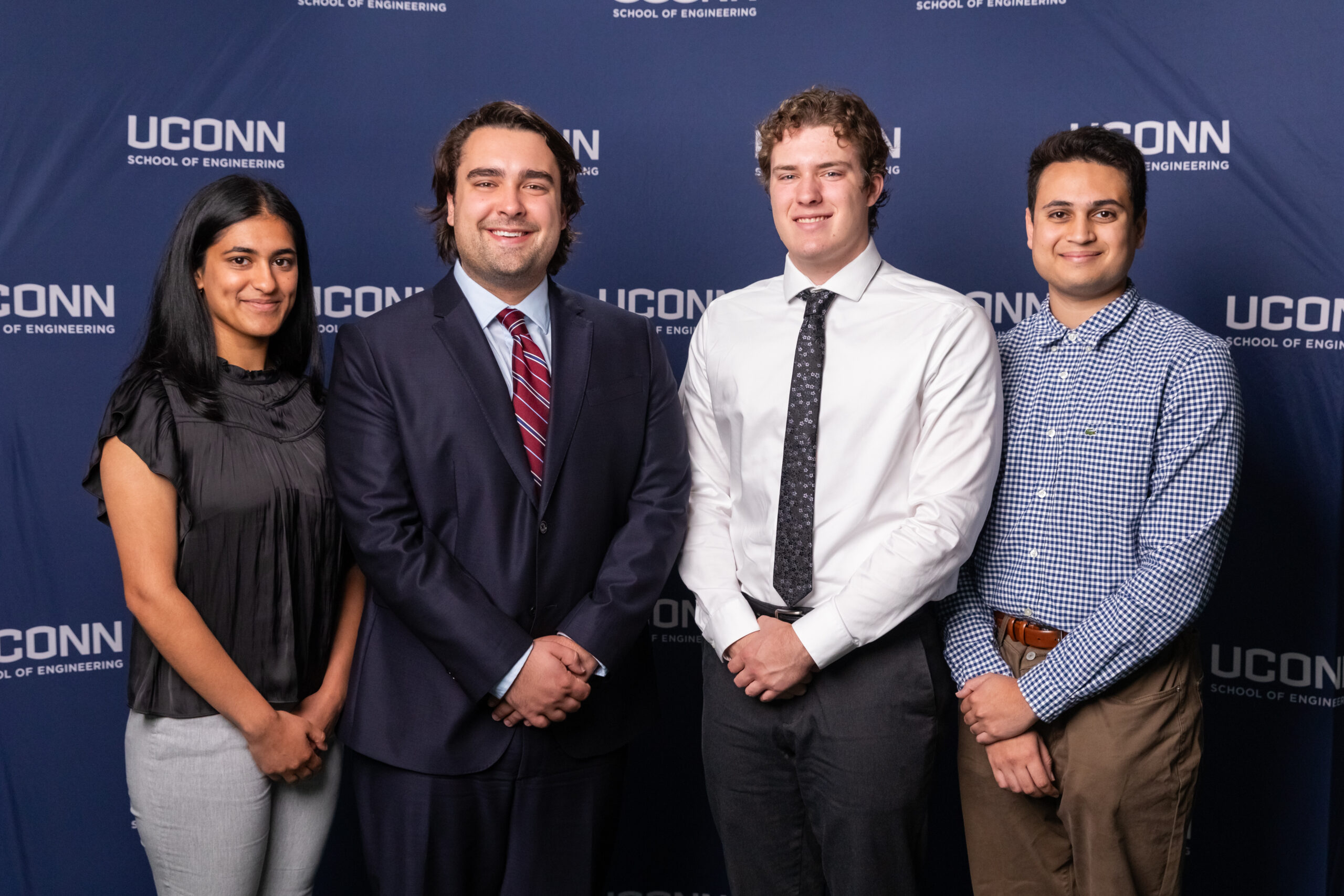2024 Biomedical Engineering Projects
Biomedical Engineering students apply the engineering skills they have acquired. The principles of design, how ethics affect engineering decisions, how professionals communicate ideas and the day-to-day implications of intellectual property.
They begin by researching the problem, brainstorming a range of solutions, and traveling to the sponsor’s site to learn more about the sponsor and the project. Student teams maintain contact with their industrial and faculty mentors, hold meetings, and make presentations on their work. Biomedical Engineering students submit written reports at intervals throughout the two-semester project timeline, and present oral presentations at the project’s conclusion.
Student Teams
-

Design of a Microfluidic Device for the Assembly of Nanoparticles
-

Circuit and Sensor Design for Smartphone-based Electroretinography
-

In Vitro Model for the Study of Traumatic Brain Injury Mechanisms
-

-

Singular Part 3D-Printed External Prosthetics for Mastectomy Patients Without Reconstruction
-

Jawbone Quality Assessment Using Co-registered Ultrasound Imaging and CT Scan
-

-

-

Wearable EMG-Controlled Tendon-Driven Prosthetic Hand to Restore Grip Function
-

Lab-on-a-Chip Microfluidic Platform for Studying the Blood Brain Barrier
-

Design of Minimally Invasive Surgical Device Burst Simulator System
-

-

-

Optimizing Continuous Glucose Monitor (CGM) Performance using Improved Sensor Electrode Design
-

Joint-on-a-chip Osteoarthritis Disease Modeling for Evaluating Anti-inflammatory Drug Performance
